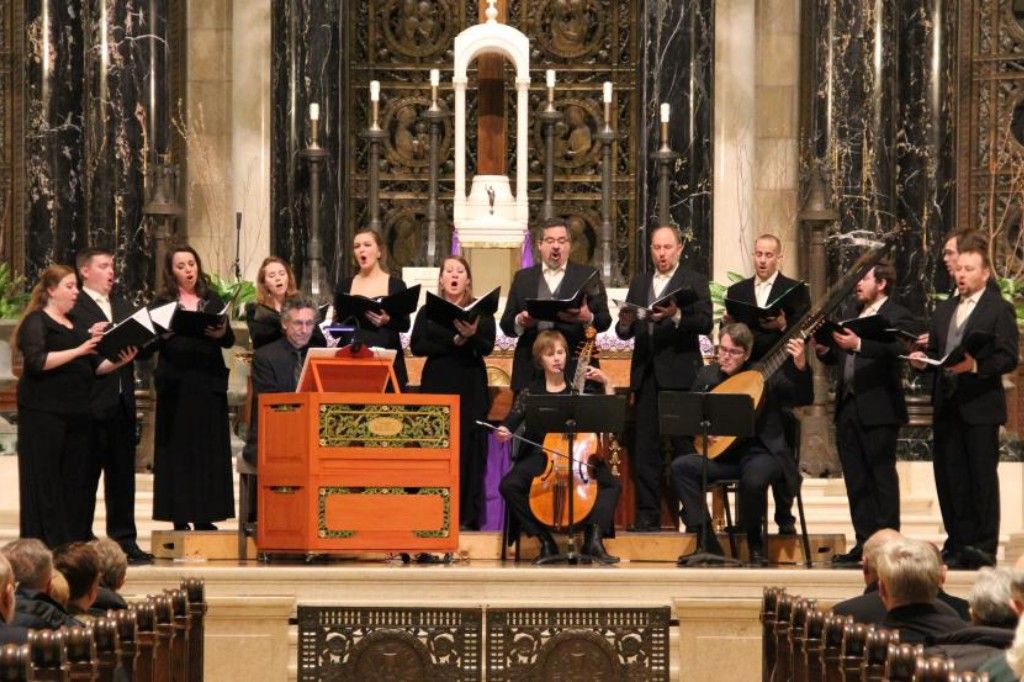Welcome to Harmonia Uncut, the podcast that brings you 20th and 21st century performances of music from the distant past. We’re visiting the Church of St. Thomas Aquinas in St. Paul, MN on March 26, 2017, and the St. Paul-based Rose Ensemble is performing liturgical music in the style of seventeenth-century France, though not all of it is by French composers.
For example, there’s Pelham Humfreys, an English composer who was sent off to study music in France and Italy. He learned well, and ultimately composed music as refined and elegant as the French, but as expressive as Italian music.
When he returned to England none other than Samuel Pepys noticed. He writes, “Little Pelham Humfreys…disparages everybody’s skill but his own. The truth is, everybody says he is very able, but to hear how he laughs at all the King’s musick here…that they cannot keep time nor tune, nor understand anything…” Perhaps by taking into account that young Pelham died at 27, we can forgive him some of his youthful arrogance.
Humfreys left a much larger musical legacy than you might imagine, though his music was not to the taste of the Victorians – too hard, too dependent on soloists and instrumentalists. Here is one of the best of the 18 verse anthems Humfreys composed: O Lord my God, from 1674:
MUSIC
Andrew Rader, Jordan Sramek, and Jake Endres were the soloists with the Rose Ensemble in Pelham Humfreys’ verse anthem O Lord my God in a performance from spring of 2017.
European theaters and opera houses used to be closed during Lent, so many fine professional singers were available to sing ornate music with highly contemplative words. And Lent is a very good time for the story that, rather unusually, appears in all four Gospels of the New Testament, in which Jesus says to St. Peter, “this night, before the cock crows, thou shalt deny me thrice,” and alas, it comes to pass.
The Rose Ensemble, directed by Jordan Sramek, performs Marc-Antoine Charpentier’s Le reniément de Saint Pierre (The Denial of St. Peter), H. 424). The careful listener may notice that the vocal role of St. Peter is sung by a high male voice - higher than a tenor, but not a falsettist as are so many singers in that range. That voice, belongs to Garrett Eucker and is described as an haute-contre voice, just as is Charpentier’s voice.
MUSIC
Marc-Antoine Charpentier’s Le reniément de Saint Pierre sung by the Rose Ensemble. Jordan Sramek was kind enough to share this recording of a concert at St. Thomas Aquinas Church in St. Paul, MN on March 26, 2017. The Rose Ensemble was joined by Patricia Halverson, viola da gamba, Bruce Jacobs, organ, and Scott Pauley, theorbo.
We’d be interested to hear what you think about anything you’ve heard on this podcast. You can find Harmonia on Facebook, or leave a comment or question any time by visiting harmonia early music dot org. This has been the Harmonia Uncut podcast, and I’m Wendy Gillespie, thanks for joining me!










